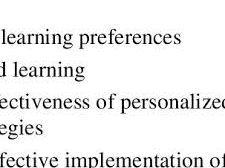Cancer is a formidable adversary, challenging not only the body but also the spirit of those affected and their loved ones. While medical advancements continue to push boundaries in cancer treatment, many individuals seek additional support beyond traditional medical interventions. Enter home cancer treatment programs – a holistic approach that integrates conventional medicine with lifestyle changes, nutrition, and supportive therapies. In this blog, we explore the concept of home cancer treatment program, their benefits, components, and how they empower individuals in their fight against cancer.
Understanding Home Cancer Treatment Programs: Home cancer treatment programs offer a comprehensive approach to cancer care, emphasizing self-care and holistic healing. These programs acknowledge that cancer affects not just the physical body but also mental and emotional well-being. By addressing all aspects of health, they aim to optimize the body’s ability to fight cancer while enhancing overall quality of life.
Components of a Home Cancer Treatment Program:
- Nutrition: A cornerstone of home cancer treatment programs is nutrition. Nutrient-dense foods can support the immune system, aid in detoxification, and help manage treatment side effects. These programs often involve personalized meal plans tailored to individual needs and preferences, incorporating a variety of fruits, vegetables, lean proteins, and whole grains.
- Lifestyle Changes: Lifestyle modifications play a crucial role in cancer management and prevention. This may include regular exercise, stress reduction techniques such as meditation or yoga, adequate sleep, and smoking cessation. These changes not only support the body’s natural defense mechanisms but also promote overall well-being.
- Supportive Therapies: Home cancer treatment programs may incorporate various supportive therapies to complement conventional treatments. These may include acupuncture, massage therapy, aromatherapy, and mind-body techniques like guided imagery or hypnotherapy. These therapies can help alleviate symptoms, reduce stress, and improve overall quality of life during cancer treatment.
- Education and Empowerment: Empowering individuals with knowledge about their condition and treatment options is a fundamental aspect of home cancer treatment programs. Education sessions provide information about cancer biology, treatment modalities, potential side effects, and self-care strategies. By understanding their disease and treatment plan, individuals can actively participate in their care and make informed decisions.
Benefits of Home Cancer Treatment Programs:
- Personalized Care: Home cancer treatment programs recognize that each individual’s journey with cancer is unique. By offering personalized care plans tailored to specific needs and preferences, these programs address the diverse challenges faced by cancer patients.
- Comprehensive Approach: Unlike traditional medical care, which often focuses solely on treating the disease, home cancer treatment programs take a holistic approach to healing. By addressing physical, emotional, and spiritual aspects of health, they promote overall well-being and resilience.
- Empowerment: Home cancer treatment programs empower individuals to take an active role in their healing process. By providing tools, resources, and support, these programs foster a sense of empowerment and control, helping individuals navigate their cancer journey with confidence.
- Enhanced Quality of Life: By optimizing nutrition, managing symptoms, and addressing emotional needs, home cancer treatment programs aim to improve quality of life for individuals living with cancer. By prioritizing holistic well-being, these programs help individuals not just survive but thrive during and after cancer treatment.



